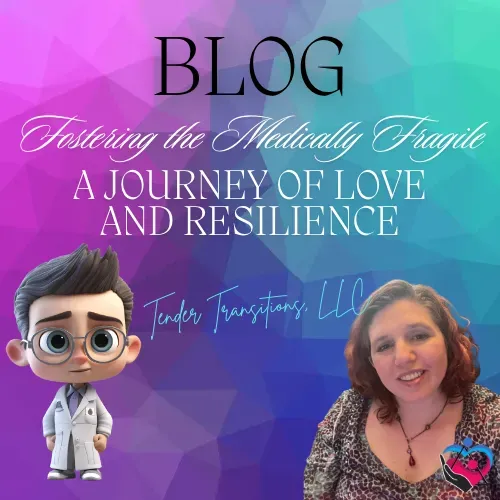Learn More About Foster Care: A Comprehensive Overiew
Foster care is a critical component of child welfare systems worldwide, providing temporary care and support for children who are unable to live with their biological families due to various challenges. Understanding foster care is essential for anyone considering becoming a foster parent, those interested in supporting foster care initiatives, or anyone looking to deepen their knowledge about child welfare. This blog post will delve into the key aspects of foster care, offering a comprehensive overview of how it works, who is involved, and how you can get involved.
1. What is Foster Care?
Foster care is a system designed to provide temporary, safe, and nurturing environments for children who cannot remain in their own homes due to issues such as abuse, neglect, or family crises. The primary goal is to ensure the child’s safety while working towards a permanent solution, which may include reunification with their biological family, adoption, or another form of long-term placement.
2. The Need for Foster Care
The need for foster care arises from situations where children are at risk of harm or where their basic needs cannot be adequately met by their biological families. Factors leading to foster care placements include:
Abuse:
Physical, emotional, or sexual abuse can make it unsafe for a child to remain in their home.
Neglect:
Failure to provide essential needs such as food, shelter, medical care, or supervision.
Family Crisis:
Situations such as domestic violence, substance abuse, mental health issues, or economic hardship that prevent parents from providing adequate care.
3. The Foster Care System Structure
The foster care system typically involves several key components:
Child Protective Services (CPS):
CPS or similar agencies are responsible for investigating reports of abuse or neglect. They assess whether children need to be removed from their homes and oversee their placement in foster care.
Foster Parents:
These are individuals or families who provide temporary care for children. Foster parents play a crucial role in offering stability and support during a child’s time in foster care.
Social Workers:
Social workers are responsible for managing cases, coordinating services, and ensuring that the child’s needs are met. They work closely with foster families, biological families, and other professionals.
Courts: The judicial system is involved in making decisions about the child’s future, including placement and permanency planning. Court hearings are held to review the child’s case and progress.
4. Becoming a Foster Parent
Becoming a foster parent involves several important steps:
Application and Training:
Prospective foster parents must complete an application process that includes background checks, home studies, and training. Training covers topics such as child development, trauma, and caregiving skills.
Licensing:
Foster parents must obtain a license from the relevant child welfare agency. This involves meeting specific requirements related to the home environment, safety, and caregiving.
Placement:
Once licensed, foster parents are matched with children based on their needs and the family’s capacity to provide appropriate care.
5. The Foster Care Experience
The experience of being a foster parent can be both rewarding and challenging. Key aspects include:
Daily Care:
Foster parents are responsible for meeting the child’s daily needs, including food, medical care, education, and emotional support.
Support and Advocacy:
Foster parents often serve as advocates for the child, working to ensure they receive necessary services and support. They may also participate in meetings and court hearings related to the child’s case.
Emotional Impact:
Caring for a child in foster care can be emotionally demanding. Foster parents may face challenges such as managing the child’s trauma, dealing with attachment issues, and navigating the complexities of the foster care system.
6. Challenges in Foster Care
Foster care presents several challenges that can impact both children and foster families:
Stability and Continuity:
Frequent placements and transitions can disrupt a child’s sense of stability and continuity, affecting their emotional and developmental well-being.
Trauma and Behavioral Issues:
Children in foster care may exhibit behavioral problems or emotional distress related to their past experiences. Addressing these issues requires patience and specialized support.
Systemic Issues:
The foster care system itself can face challenges, such as insufficient resources, high caseloads for social workers, and a need for more foster families.
7. How You Can Get Involved
There are several ways to support foster care and make a positive impact:
Become a Foster Parent:
If you’re interested in providing a safe and loving home for a child in need, consider becoming a foster parent. Reach out to local child welfare agencies to learn more about the process.
Support Foster Care Organizations:
Many organizations provide valuable resources and support to foster children and families. Consider volunteering, donating, or advocating for these organizations.
Raise Awareness:
Educate others about the needs of children in foster care and the importance of supporting foster care initiatives. Awareness can lead to increased support and improved outcomes for children.
8. Resources and Support
For those involved in or interested in foster care, numerous resources are available:
Local Child Welfare Agencies:
These agencies can provide information about foster care requirements, training, and support services.
National Organizations:
Organizations such as the Child Welfare League of America (CWLA) and the National Foster Parent Association (NFPA) offer resources and advocacy for foster care.
Online Communities:
Many online forums and support groups exist for foster parents and those interested in foster care, providing a platform for sharing experiences and advice.
Conclusion
Understanding the foster care system is crucial for anyone involved or interested in child welfare. By learning about the processes, roles, and challenges of foster care, you can better support children in need and contribute to improving their lives. Whether through becoming a foster parent, supporting organizations, or raising awareness, your involvement can make a significant difference in the lives of children and families in the foster care system.

